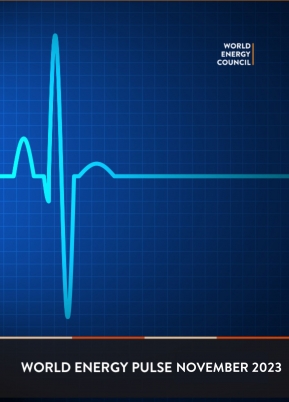World Energy Pulse November 2023: A critical turning point for energy leadership
The World Energy Council has been tracking world energy leadership perspectives through our annual World Energy Issue Monitor survey for 15 years, and using more frequent deep-dive Pulses to make sense of the faster and more fundamentally shifting context of global energy transitions.
Following our November 2023 Pulse survey of over 800 leaders across six world regions, discussions by experts across our global community have informed four pre-COP28 insights:
New and More Demand-Driven Collaboration: Regulatory frameworks, price signals and international standards are some of the collaboration at scale levers that have worked in the past to scale new technologies globally. Now the search is on for new and more effective approaches which enable demand-driven solutions and user-centric services and support the active participation of more people – women, workers and youth – and diverse and vulnerable communities. As we extend our membership beyond the classic energy and power industry sectors, our members are also engaging wider energy leadership communities – Future Energy Leaders Women in Energy, Place-Based Communities in Energy. Navigating the resurgence of Global North versus Global South interests cannot be left to old models of market versus state-led cooperation.
Overshooting Optimism – Planning for the best and preparing for the worst: All signals suggest there will be an overshoot of 1.5oC and the question becomes how to ensure this is a blip rather than the new normal. It is also important to anticipate and address the overshoot of other than climate, planetary boundaries as the world shifts from burning fossil fuels to new renewable-based power and other clean, net zero energy systems.
Engaging Regional Diversity to Enable Resilience: Multiple energy transition pathways are emerging in all regions: there is no one size fits all approach. New challenges include the gap in investment – not only geographical but the lag of investment in infrastructure and storage needed to connect rapidly growing renewable power generation with users. Concerns about affordability, fair access and societal acceptability are also moving back to centre stage even as energy and climate security challenges are reconnected. Integrated policy frameworks and pathfinding approaches, such as the World Energy Trilemma framework help direct attention to managing the emerging trade-offs and synergies between energy security, affordability, and sustainability. The evolution and extension of the World Energy Trilemma is essential to avoid swinging from one crisis to the next.
Moonshots, Earthshots and Empathy Shots: Besides addressing absolute energy poverty and the recent reversal in basic energy access, a broader set of fairness concerns is gaining prominence, intertwining intergenerational climate justice and multidimensional social equity matters.
Learn more about the World Energy Pulse here and download the full November 2023 Pulse results below.
Downloads






_-80_result_688_387_s_c1_c_c.jpg)


